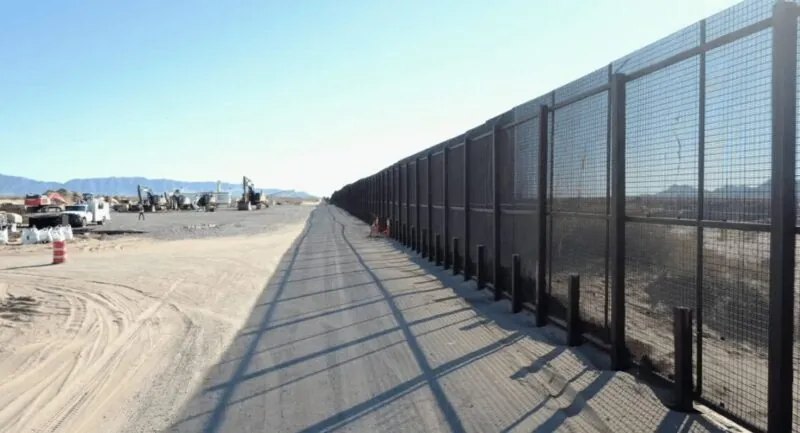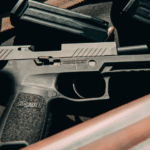Each state has its unique set of rules and regulations, often differing significantly from its neighbors. This variability can pose challenges for individuals who wish to remain compliant with the law while transporting their firearms.
Understanding these regulations is not only a matter of legal compliance but also of personal responsibility and safety. The laws governing this subject are intricate and can change, making it imperative for individuals to stay informed about the most current regulations in any state they plan to visit or pass through.
Firearm Transportation Laws in the U.S.
At the federal level, certain overarching laws do influence how individuals can transport firearms. The most notable is the Firearm Owners Protection Act (FOPA) of 1986, particularly its “Safe Passage” provision.
This federal statute provides protection for the interstate transportation of firearms, allowing individuals to transport legally acquired firearms across state lines, provided the firearms are unloaded, not readily accessible from the passenger compartment, and locked in a container if the vehicle does not have a compartment separate from the driver’s area.
Despite these federal protections, the importance of understanding and adhering to individual state regulations cannot be overstated. Each state can impose additional requirements or restrictions, such as specific types of locking containers, ammunition storage, or even outright prohibitions on certain kinds of firearms within vehicles.
For instance, some states might require a concealed carry permit for transportation in a vehicle, while others might have more relaxed standards.
| Federal Law (FOPA) | Allows interstate transportation of unloaded, inaccessible firearms. |
| State Variability | Diverse laws and regulations depending on the state. |
| Concealed Carry Permits | Some states require permits for transportation in vehicles. |
| Locking Containers | Varying requirements on types of locking containers for firearms. |
| Ammunition Storage | Regulations on how and where ammunition can be stored in vehicles. |
| Penalties for Non-Compliance | Can include fines, imprisonment, and confiscation of the firearm. |
Northeastern States
In the northeastern region of the United States, states such as New York, Massachusetts, and Pennsylvania each present a unique set of regulations concerning the transportation of firearms within vehicles, often showcasing some of the most stringent rules in the country.
- New York: Here, possessing a firearm in a vehicle without a proper license is strictly prohibited. New York’s laws require that any firearm transported within the state must be unloaded and placed in a locked container, separate from any ammunition. Additionally, New York City has its own set of even more restrictive ordinances, requiring a special permit even for just passing through the city with a firearm.
- Massachusetts: Similar to New York, firearms transported in vehicles must be unloaded and stored in a locked case. However, Massachusetts goes further by requiring that the owner must also possess a Massachusetts License to Carry in order to legally transport a handgun, even if just passing through the state. Failure to comply with these regulations can lead to severe legal consequences.
- Pennsylvania: The state allows for the transportation of unloaded firearms without a license, but the firearm and ammunition must be stored separately. Pennsylvania recognizes concealed carry permits from certain other states, which can ease the process for residents of those states.
Southern States
The southern United States, particularly states like Texas, Florida, and Georgia, offers a contrasting perspective to the Northeast in terms of regulations surrounding the transportation of firearms in vehicles. These states are generally known for their more lenient laws, reflecting a different cultural and legal approach to firearm ownership and transportation.
- Texas: Individuals can transport firearms in their vehicles without needing a license. The law states that the firearm must be concealed, and the individual must be legally eligible to own a firearm. This approach stands in stark contrast to states like New York, where a license and strict storage requirements are the norms.
- Florida: An individual can legally transport a firearm in their vehicle as long as it is securely encased and not readily accessible. Secure encasement can include a glove compartment, gun case, or even a snapped holster. This regulation offers more flexibility compared to the stringent laws of Massachusetts, for example.
- Georgia: Any law-abiding citizen can transport an unloaded firearm in any closed compartment within the vehicle, including the glove box or console. This policy is notably different from Pennsylvania, where separate storage of firearm and ammunition is required.
Midwestern States
These states exhibit a range of regulations that reflect their diverse demographic and geographic compositions.
- Illinois: Particularly notable for its complex firearm transportation laws, significantly influenced by the urban environment of Chicago. Statewide, individuals must have a Firearm Owners Identification (FOID) card to transport a firearm. The firearm must be unloaded and enclosed in a case. However, the city of Chicago has additional ordinances that are more restrictive, mirroring the stringency of Northeastern urban centers like New York City.
- Michigan: Individuals can transport an unloaded firearm in a vehicle as long as it’s in a closed case or the trunk. A key aspect is that Michigan recognizes concealed pistol licenses issued by other states, which can simplify interstate travel for firearm owners.
- Ohio: You can transport an unloaded firearm in a vehicle without a license, but it must be in a compartment that can be reached without leaving the vehicle or in a locked case. The influence of urban areas like Cleveland and Cincinnati is evident in local ordinances that add layers of complexity to the state law.
Western States
The Western United States, especially states like California, Nevada, and Oregon, exhibits a wide spectrum of firearm transportation laws. These states showcase a diverse range of approaches, from very strict regulations to more moderate policies.
- California: Any firearm transported in a vehicle must be unloaded and stored in a locked container other than the glove compartment or utility box. Additionally, certain types of firearms are completely prohibited from being transported. These strict regulations are in stark contrast to the more permissive laws of many other states.
- Nevada: It’s legal to transport a firearm in a vehicle without any specific container or locking requirements, as long as the individual is legally allowed to own a firearm. This approach is more in line with the lenient policies seen in Southern states like Texas.
- Oregon: You can transport firearms in vehicles, but certain localities have additional regulations, especially in urban areas. For instance, in Portland, firearms in public places, including roads and vehicles, must be unloaded unless the individual has a concealed handgun license.
State Borders – Challenges and Compliance
Crossing state lines while carrying firearms in a vehicle presents various challenges and legal issues. This complexity is due to the varied state laws across the United States, with each state having its own set of rules for transporting firearms in vehicles.
Challenges in Interstate Travel
One of the primary challenges faced by individuals traveling across state lines is the variability in laws from one state to another. What is legal in one state can be illegal in another, making compliance a moving target.
For example, a firearm owner legally transporting a weapon in a vehicle in a state with lenient laws may inadvertently violate stricter laws upon entering a neighboring state. This issue is particularly acute for travelers who pass through multiple states, each with its own set of rules and regulations.
Additional Tips
- Research Before Traveling: Before embarking on a trip, it’s crucial to research and understand the laws of each state you plan to pass through. This includes laws about the types of firearms allowed, storage requirements, and permit recognition.
- Plan Your Route Carefully: Consider the route and the states it passes through. Some states may have more stringent regulations that could complicate travel with a firearm.
- Consult Legal Resources: Utilize resources such as state government websites, firearm advocacy groups, or legal counsel for the most up-to-date information.
- Prepare for Variability: Be prepared to adjust your firearm storage based on different state laws. This might involve changing the way the firearm is stored or accessed within the vehicle.
- Avoid Extended Stays in Strict States: If traveling under FOPA protections, minimize stops in states with restrictive firearm laws to avoid legal complications.
- Carry Documentation: Have all necessary permits and identification readily available, and consider carrying information that details the firearm transportation laws of the states you’re traveling through.
FAQs
Is Tennessee an open carry state?
Yes, Tennessee is an open carry state, meaning that you can carry a handgun or a long gun openly without a permit, as long as you are 21 years or older and not prohibited from owning firearms. However, you still need a permit to carry a handgun in a vehicle or in certain locations such as schools, parks, and courthouses.
Can you have a gun at 17 in Georgia?
No, you cannot have a gun at 17 in Georgia, unless you are under the direct supervision of a parent, guardian, or qualified instructor. The minimum age to possess a handgun in Georgia is 18, and the minimum age to obtain a concealed carry permit is 21.
Can an 18 year old open carry a pistol in Ohio?
No, an 18 year old cannot open carry a pistol in Ohio, because the minimum age to possess a handgun in Ohio is 21. However, an 18 year old can open carry a long gun, such as a rifle or a shotgun, as long as they are not prohibited from owning firearms.
Can I carry a gun in my car in Michigan?
Yes, you can carry a gun in your car in Michigan, but the rules depend on whether you have a concealed pistol license (CPL) or not. If you have a CPL, you can carry a loaded handgun in your car, either concealed or openly. If you do not have a CPL, you can only carry an unloaded handgun in your car, in a case, and in the trunk or inaccessible to the driver.
Can I keep a rifle in my car in Ohio?
Yes, you can keep a rifle in your car in Ohio, as long as it is unloaded and not accessible to the driver or any passengers. You do not need a permit to transport a long gun in your car, but you must follow the state’s laws regarding safe storage and transportation of firearms.











